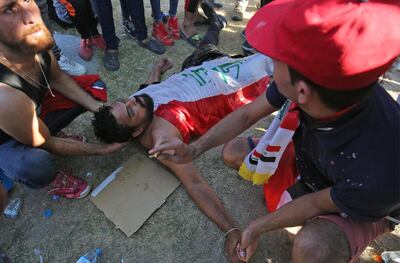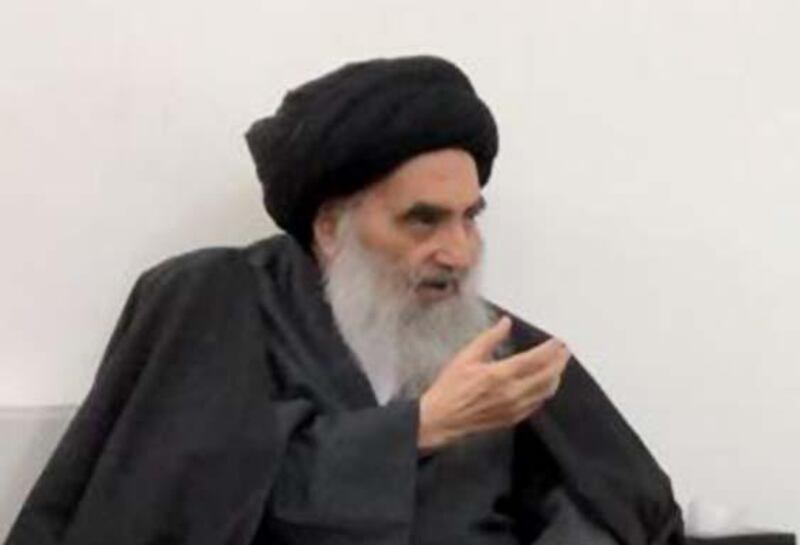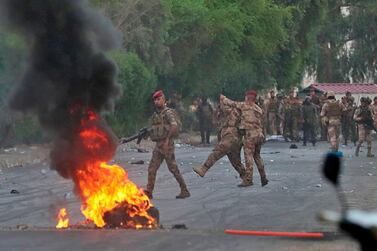Iraq's top Shiite cleric on Friday blamed the government and security forces for the deaths of scores protesters and set a deadline for those responsible to be named.
In a sermon read out at the main weekly prayers, Grand Ayatollah Ali Al Sistani gave authorities two weeks to release the findings of an investigation into the more than 100 deaths recorded during the several days of protests from October 1 to 6.
The protests began with demands for an end to rampant corruption and high unemployment and escalated into calls for a complete political overhaul. The demonstrations in Baghdad and across the south of the country quickly turned violent, as protesters were met with tear gas and live fire, with more than 6,000 wounded.

"The government and its security forces are responsible for the bloodshed during the recent protests", Mr Al Sistani said in a sermon delivered by his representative Abdel Mahdi Al Karbalai in Karbala on Friday.
"What happened demonstrates an unfettered violence that goes beyond all limits of the imagination," he added. "The government is responsible when, under the eye of law enforcement, protesters are fired on illegally and media are beaten or attacked to terrorise their employees".
The ayatollah called on authorities to "put an end to threats, beatings, abductions, sniper fire and violence by those who believe they can act with total impunity".
The intervention by Mr Al Sistani, who rarely weighs in on politics except in times of crisis, will place new pressure on Prime Minister Adel Abdul Mahdi to curb the power of Iran-backed Shiite militias, widely blamed by the public for the violence against the protesters.
Mr Abdul Mahdi said this week that he had banned the use live ammunition at demonstrations and ordered an investigation into the shootings. He also promised the creation of jobs, housing for the poor, and a reshuffle of his cabinet, with the health and education ministers being replaced on Thursday. On Friday, Iraq's anti-corruption council announced that it was investigating nine former officials, including two ministers and four provincial governors, on the prime minister's orders.
The recent demonstrations were unprecedented because of their apparent spontaneity and independence in a deeply politicised society.
Mr Al Sistani endorsed the protests on October 4, calling on the government to heed the demonstrators' demands "before it's too late".
"The government must change its approach in dealing with the country's problems," he said, adding that politicians also bore a heavy responsibility.
The cleric wields huge influence within Iraq's Shiite community, who made up most of the protesters. After six days of violence, the authorities recognised "excessive force outside the rules of engagement" had been used in Sadr City, the Baghdad stronghold of influential Shiite leader Moqtada Al Sadr.







